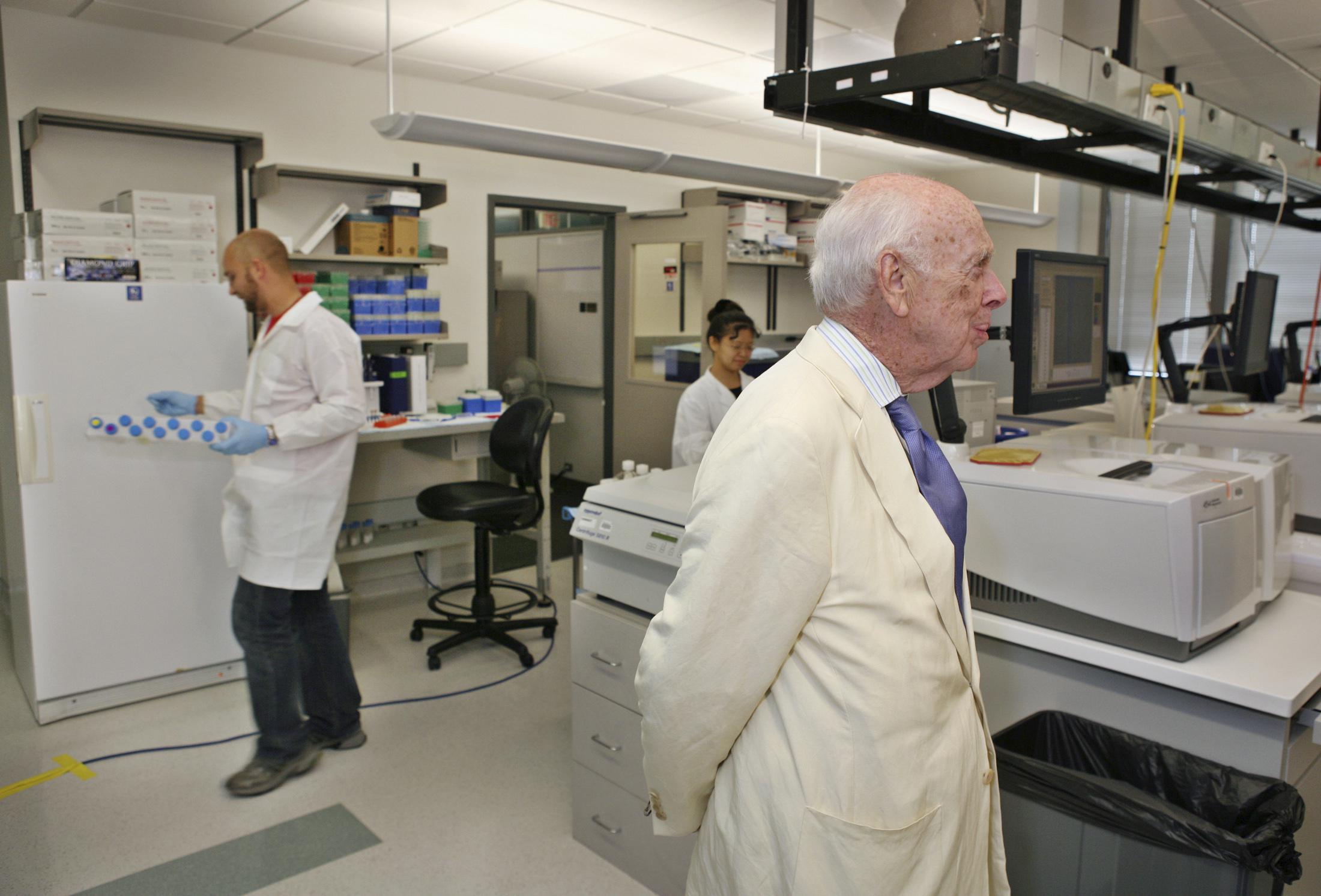James Watson’s Nobel Prize medal, awarded for his work in discovering the structure of DNA, was sold at Christie’s for $4.1 million on Thursday, above the predicted price range of $2.5 to $3.5 million. Including an additional “buyer’s premium” fee for the auction house, the total price the anonymous purchaser will pay is $4.757 million.
Watson has been criticized widely in recent years for his long history of making disparaging remarks about women and minorities; Slate’s Laura Helmuth characterized him as a “peevish bigot” a piece on Dec. 1. He was forced to retire as chancellor of the Cold Spring Harbor Laboratory after saying in 2007 that Africans are less intelligent than other types of people. Other recent highlights include his 2012 observation on women in science: “I think having all these women around makes it more fun for the men, but they’re probably less effective.”
The sale is believed to be the first sale of a Nobel medal by a living winner of the prize. The medal of Waton’s partner Francis Crick garnered $2.27 million in a posthumous auction at Dallas-based Heritage Auctions last year. The price fetched by Crick’s medal prompted Waton’s decision to sell—in the pre-lot text provided to Christie’s, he wrote, “I knew I would soon auction off my 1962 Gold Nobel Medal the moment I learned that Francis Crick’s Gold Medal, May 2013, had been so sold for more than two million dollars.” Watson also told the Financial Times that he hopes to regain public attention from the sale since becoming an alienated “unperson” because of his controversial comments.
Before the Crick auction, the only public auction of a Nobel Prize was that of Aage Niels Bohr’s 1975 Physics medal, auctioned off by an anonymous seller for the bargain price of around $75,000; William Faulkner’s 1949 Nobel Prize in Literature went unsold at auction at Sotheby’s last June.*
Asked about Watson’s notoriety, the international director of printed books and manuscripts for Christie’s told the New York Times that “Thomas Jefferson said some controversial things too,” adding: “As far as Christie’s is concerned, the monumental discovery of the double helix is what this is about.”
Correction, Dec. 4, 2014: This post originally misidentified the 1975 Physics Nobel Prize winner as Niels Bohr. The winner was Aage Niels Bohr, Niels Bohr’s son. (Niels Bohr won his own Nobel Prize in Physics in 1922.)
